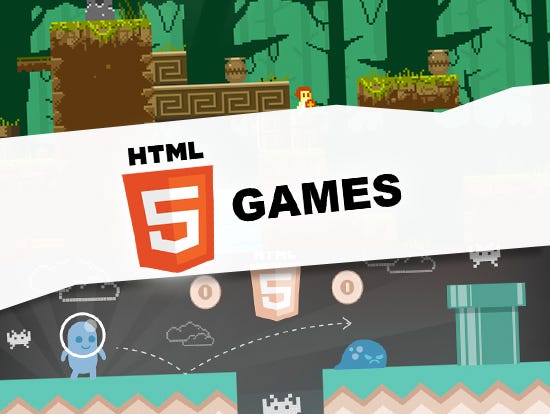Trending
Opinion: How will Project 2025 impact game developers?
The Heritage Foundation's manifesto for the possible next administration could do great harm to many, including large portions of the game development community.
Lets take a quick look on what are the advantages of doing game development in HTML5

HTML5 is quickly turning into one of the best game development platforms in recent times. In 1997, developers initially created Adobe Flash Player, and it revolutionizes the way developers could display their content on the Web. Over time, Adobe Flash Player plugin starts to become too heavy for intended uses and the rise of smartphones complicates the matter more. HTML 5 developments provide a lightweight solution to the problem and compare to Adobe Flash Player; it is much more compatible with mobiles and Web-based platforms.
HTML5 introduces many cutting edge features like 2D and 3D graphics, quality audio APIs, and offline asset storage, that enable game developers to build compelling games in an interactive way. HTML5 allows developing games that easily adapt to different resolutions, screen sizes, aspect ratios, and guidelines. Comparing the other complex technologies like Objective - C, C#, and Visual Studio, HTML5 is much easier and efficient for game development.
Like these, there are plenty of other reasons to develop games with HTML5.
• One of the most distinct advantages of developing games in HTML5 is universal compatibility. HTML5 works as a cross-platform. Games built in HTML5 can be accessed in mobiles, PCs, laptops, and in other smart devices. Developers just have to think about the gameplay and how the game will respond to various screen sizes and input types and have to make some personalization in the code per platform, but it’s far better than the completely porting games. Games can also be deployed as local web games and can be viewed in browsers.
• HTML5 is an open source game engine with all necessary tools to create games. The engine is extremely versatile and boasts extensive APIs to provide end users the real gaming experience.
• HTML5 offers many JavaScript game engines and frameworks for developing 2D games such as Contstruct2, Three.js, Play Canvas, Turbulenz, Kick.js., Minko and Unity5. These game engines make it easier to develop 2D games. HTML5 allows accessing all these technologies, unlike Flash. Moreover, making 2D games in HTML5 is not tedious at all.
• Developing the game in HTML5 is fast. Developers don’t have to wait for compilation, updates and debugging in real-time, and once the game is done, they can push out the update immediately. HTML5 provides the APIs for WebGL, Canvas and Web Audio that are the essentials for constructing advanced games compatible to run in a web browser.
• The Canvas element in HTML5 is an element through which any shape can be drawn in 3D. Canvas element converts the shapes into 3D images. The images can be employed through programming or added directly as graphics in Canvas element. Though Canvas is not supported by older versions of the browser but all the new browsers that are being used widely, supports the canvas element. Besides, to render and introduce sprites and physics to the game, customized API frameworks are readily available.
• Another revolutionary feature of HTML5 is that it can be operational offline. Thus, the games developed in HTML 5 can be played offline without web connectivity.
• HTML5 games are easiest for users too, and they do not have to install and download different plug-ins to play 2D games in browsers.
A very advanced feature of HTML5 is that any update to the program or coding is automatically configured in all the particular application online. As soon as the alteration is made, it gets applied to every user and platform where the game is played. Thus, this advanced feature makes HTML 5 very distinctive from the previous versions of HTML. There are many popular games built with HTML5 are like HexGL, CrossCode, Sketch out, Bejeweled and Gods Will Be Watching.
Read more about:
BlogsYou May Also Like